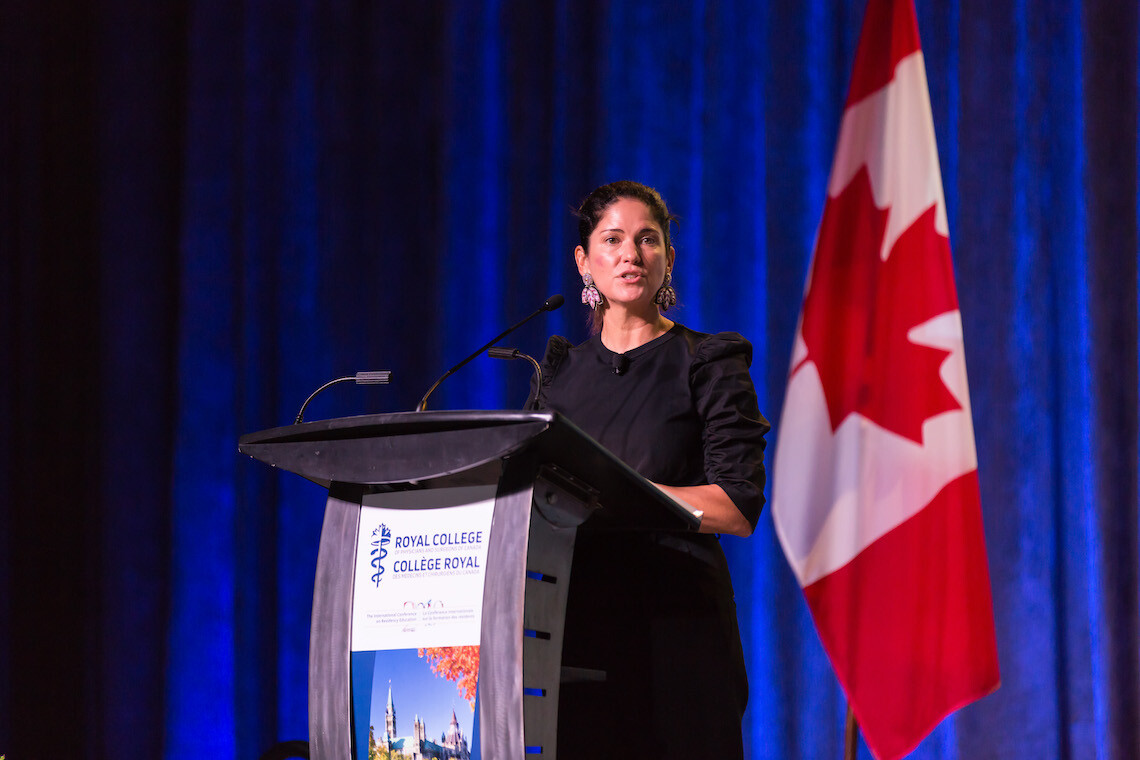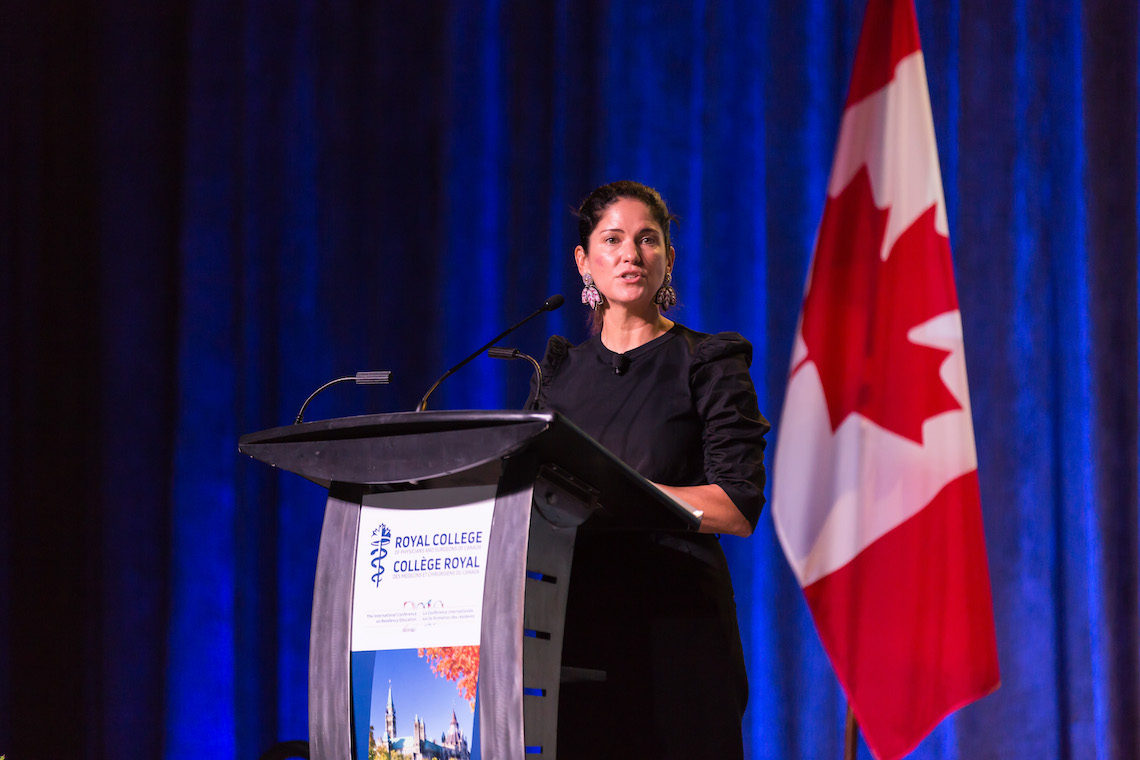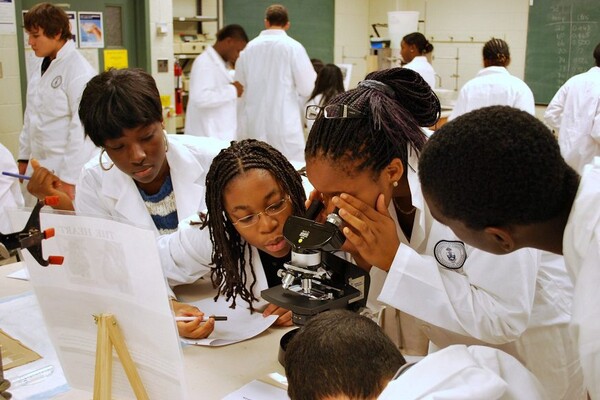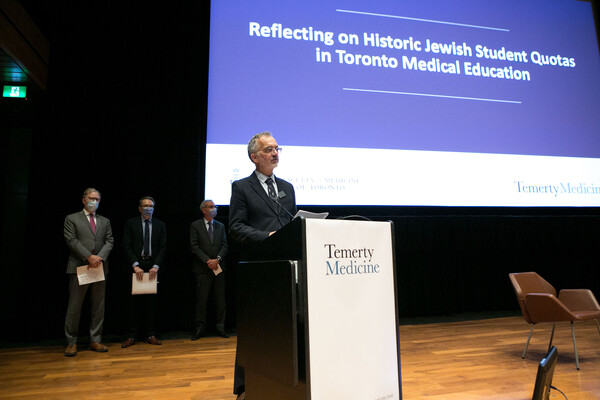Mobile Menu
- Education
- Research
-
Students
- High School Outreach
- Undergraduate & Beyond: Community of Support
- Current Students
- Faculty & Staff
- Alumni
- News & Events
- Giving
- About


Sunday marked National Indigenous Peoples Day. The day is intended to recognize and celebrate the cultures and contributions of the First Nations, Inuit and Métis peoples of Canada. It is not only a day of celebration but a pivotal opportunity to reflect on how Indigenous lives are valued in our communities across this country and to chart a meaningful way forward that will make a profound and lasting positive impact on and for Indigenous peoples.
We are in the midst of tumultuous and challenging times. We have witnessed in recent weeks the senseless and disparaging acts of aggression and violence against Indigenous peoples. This is not new. This is ongoing. We have read of Chantel Moore, a 26-year-old Tla-o-qui-aht/Nuu-chah-nulth woman, who was shot by a police officer during a wellness check, Chief Allan Adam of the Athabasca Chipewyan First Nation being beaten during an arrest by RCMP officers, and of the many missing and murdered Indigenous women who have gone and continue to go unnamed. We have also seen the solidarity between Black and Indigenous communities in the Black Lives Matter movement to advocate for justice and the recognition of racism as a public health crisis.
Many Canadians react with shock and horror that these events happen right here in Canada and have been moved to express their support for change. For Indigenous and Black communities, the current exposure of racism is not a surprise — racism is embedded in the lived experiences of many. As Perry Bellegarde, the National Chief of the Assembly of First Nations, wrote in The Globe and Mail last week: “Let’s spare ourselves another futile debate over whether systemic racism exists in Canada. There have been countless reports over the past 50 years, and the conclusion is always the same: First Nations face systemic racism in every aspect of life and from every institution of Canadian society. This is a fact. It should be clear to everyone by now that Canada’s unwillingness to address systemic racism is killing people.”
All the words that can be said have been spoken. Now is the time for action. And, that includes actions by the Faculty of Medicine. We must confront our role in perpetuating explicit and implicit bias, anti-Indigenous racism, and anti-Black racism.
Since the launch of the Faculty of Medicine’s Academic Strategic Plan, we have had a small but dedicated team working in the background, including but not limited to myself, Professor Jason Pennington, Lindsey Fechtig and Professor Sal Spadafora, who serves as the Decanal Sponsor for this initiative. For nearly two years we have worked in consultation with our Indigenous community partners, external stakeholders and internal Faculty of Medicine leadership to expand the mandate of the Office of Indigenous Medical Education to support learners, faculty and staff across the education continuum while identifying appropriate and sustainable resources and Indigenous leadership.
To begin that work, we first needed to rebuild strained existing relationships and establish trust to cultivate new partnerships with Indigenous communities, who are rightfully skeptical of our intentions and our commitment. As a result of that effort, we have gained tremendous insights on the challenges, opportunities and needs that we, as the Faculty of Medicine, can address. That learning has led to a series of recommendations for action.
In the weeks and months to come, we will work to finalize those recommendations and share them broadly. But, in the short-term, I want to share a few of the steps the Faculty can undertake. They include:
We are only as good as our actions. We must embark on a path forward in partnership with our Indigenous community members, faculty, staff and learners. This is a long-term commitment without shortcuts or acts of tokenism. Systemic, anti-Indigenous racism, which has been built and reinforced over centuries by successive generations, will take a commitment by successive generations to end. Now is the time to make that commitment.
Lisa Richardson, MD MA FRCPC
Strategic Lead, Indigenous Health, Women’s College Hospital & Faculty of Medicine
Associate Professor & Vice-Chair, Culture & Inclusion, Department of Medicine
Faculty of Medicine


